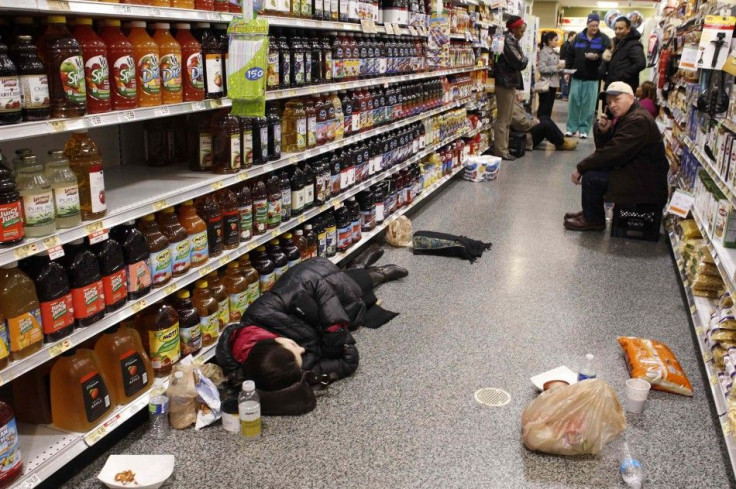Weather Alert: Canada Advised To Brace For Winter Storm Cato

Environment Canada last Wednesday advised residents on the East Coast to prepare themselves and brace against an onslaught of snow, ice and rain triggered by the large winter storm Cato blasting the U.S. Northeast. The agency cautioned residents the weather is expected to create hazardous conditions, effectively warning against travelling in time for the U.S. Thanksgiving holiday on Thursday.
All four Maritime Provinces received weather warnings last Wednesday from Environment Canada, of which New Brunswick is expected to receive the heaviest snowfall at over 35 centimetres starting Wednesday and going onwards Thursday. Northwestern Nova Scotia, Prince Edward Island and Newfoundland will also be dumped with snowfall, although in lesser amounts. Rain could possibly occur in Southern Nova Scotia, at over 60 millimetres, that could lead to flash flooding.
Rain and snow had actually grounded hundreds of flights and had transformed the Washington-to-Boston corridor highways into sloppy ones. CBC News reported by early afternoon on Wednesday, over 550 flights had been cancelled, majority of which were in the Northeast. Flight delays are likewise being already assumed to reach to thousands. "Travel is not going to be a lot of fun for people trying to get to Grandma's house on Wednesday," Kevin Roth, lead meteorologist at The Weather Channel, said. Citing data provided by flight-tracking service FlightAware, CTV News reported that approximately 460 flights on Wednesday have been scrapped, along with 104 flights on Thursday.
The Insurance Bureau of Canada, or IBC, reminded affected residents that insurance typically covers damage to homes caused by snow, hail or wind, including those hit by flying debris or falling branches or trees. Damage caused by water or snow that entered suddenly through openings caused by the high winds are likewise covered.
IBC advised residents to keep snow and ice clear of gas or propane meters, exhaust vents and basement windows. It also reminded to ensure pipes don't get frozen and that it would be best to fit exposed pipes with insulation sleeves or wrapping. IBC advised residents to contact its Consumer Information Centre for further information.





















